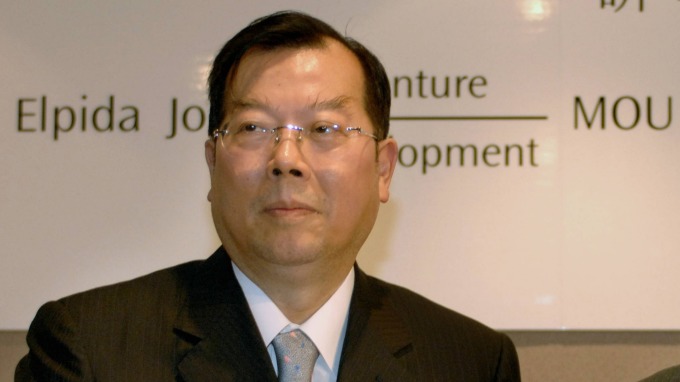Taiwan Semiconductor Industry Association (TSIA) held "2018 TSIA Annual Meeting" today on November 27. The founder of Powerchip (5346-TW), Frank Huang, told reporters that the industry is full of uncertainties for now. It is expected that the semiconductor industry will slow down slightly in 1Q19, and China’s development of semiconductors will slow down due to US-China trade war.
Semiconductor industry in China may no longer be able to expand as it has in the past and may face the wave of merge and acquisition.
As a result, it may bring opportunities for Taiwan’s companies. “Through Jinhua case, we can see that the United States is trying to make sure that China can no longer develop DRAM.” said Huang.
Regarding US-China trade war, Huang pointed out that the trade war is relatively favorable to Taiwan's semiconductor industry. For now, the industry is full of uncertainty and the companies are adjusting the inventory. It is expected that semiconductor industry may slow down slightly in 1Q19. However, once the United States confirms to impose 10% tariff on China’s billion worth of goods, the situation will become more evident.
Huang stated that the inventory in China’s market was relatively high. However, due to uncertain factors, wait-and-see sentiment prevails in the market, and the inventory level declined. Since the US-China trade war has initiated, financial weaknesses of the companies in China have been exposed. On the contrary, the operation Taiwan’s company is much better.
Huang believes that once the outcome of the US-China trade war is settled, the development of China's semiconductor industry would be hit and slow down and may not be able to expand as it has in the past. In addition, since the financial structure of China’s companies are not well, the industry may face the wave of mergers and acquisitions.
It is expected that the semiconductor industry in China may gradually merge into a more reasonable industrial infrastructure in responding to the trade war and may bring many opportunities for Taiwan’s companies.
"Trump helps Taiwan’s industry indirectly. “told Huang.
更多精彩內容請至 《鉅亨網》 連結>>
我是廣告 請繼續往下閱讀
As a result, it may bring opportunities for Taiwan’s companies. “Through Jinhua case, we can see that the United States is trying to make sure that China can no longer develop DRAM.” said Huang.
Regarding US-China trade war, Huang pointed out that the trade war is relatively favorable to Taiwan's semiconductor industry. For now, the industry is full of uncertainty and the companies are adjusting the inventory. It is expected that semiconductor industry may slow down slightly in 1Q19. However, once the United States confirms to impose 10% tariff on China’s billion worth of goods, the situation will become more evident.
Huang stated that the inventory in China’s market was relatively high. However, due to uncertain factors, wait-and-see sentiment prevails in the market, and the inventory level declined. Since the US-China trade war has initiated, financial weaknesses of the companies in China have been exposed. On the contrary, the operation Taiwan’s company is much better.
Huang believes that once the outcome of the US-China trade war is settled, the development of China's semiconductor industry would be hit and slow down and may not be able to expand as it has in the past. In addition, since the financial structure of China’s companies are not well, the industry may face the wave of mergers and acquisitions.
It is expected that the semiconductor industry in China may gradually merge into a more reasonable industrial infrastructure in responding to the trade war and may bring many opportunities for Taiwan’s companies.
"Trump helps Taiwan’s industry indirectly. “told Huang.
更多精彩內容請至 《鉅亨網》 連結>>




